Talmakhana: Uses, Benefits and Side Effects by Dr. Smita Barode
By Dr Smita Barode +2 more

Get,

to manage your symptom
Get your,


4 Cr+ families
benefitted

OTP sent to 9988776655



You’ve successfully subscribed to receive
doctor-approved tips on
Whatsapp

Get ready to feel your best.

Hi There,
Download the PharmEasy App now!!


Register to Avail the Offer
Send OTPBy continuing, you agree with our Privacy Policy and Terms and Conditions

Hi There,
Sign up on PharmEasy now!!
Trusted by 4 crore+ families

OTP sent to 9988776655



You have unlocked 25% off on medicines




Code: NU25
By Dr Smita Barode +2 more
Table of Contents
The Indian system of medicine, i.e. Ayurveda, teaches us how to cherish mother nature. Ayurvedic herbs and spices play an important part in promoting health and wellness. One such herb which has gained limelight during these years is talmakhana, a special category of drugs classified under Rasayana. Talmakhana finds mention in ancient books like “Charak Samhita” and “Sushruta Samhita.” Talmakhana is the bitter seed obtained from the Asteracantha longifolia (L.) Nees. In the Unani system of medicine, these seeds are called talmakhana, whereas in Ayurvedic medicine, they are called kokilaksha (having eyes like kokila or Indian cuckoo). The other vernacular names of Talmakhana include Iksura (Sanskrit), Golmidi (Tamil), Ekharo (Gujarati) and Nirmuli (Malayalam). This plant is widely cultivated in India, Sri Lanka, Malaysia and Nepal. Let’s read more about the health benefits of talmakhana and some common considerations which you need to keep in mind before adding talmakhana to your diet1.
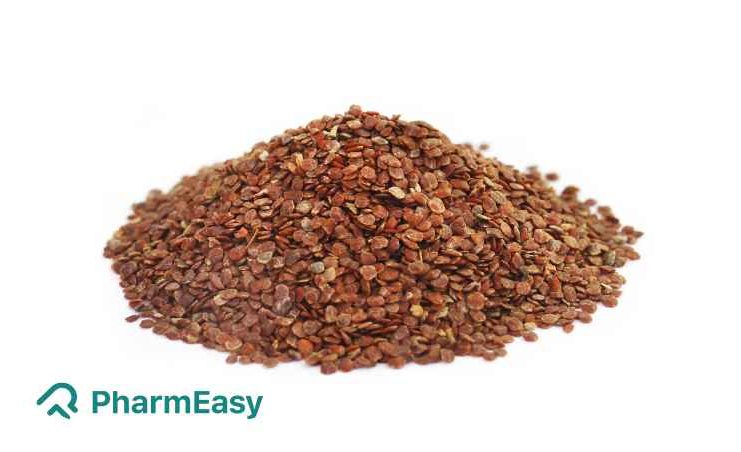
Talmakhana is packed with the goodness of minerals like sodium, magnesium, potassium, calcium, iron, chromium, copper, zinc, nickel, cadmium, etc. The nutritional chart of talmakhana is given below2.
Studies8 have revealed that Talmakhana may be used to tackle symptoms of gout. In my experience, Talmakhana is known for its caustic, bitter, aphrodisiac, tonic, sedative and anti-inflammatory nature that is used to manage blood disorders.
Dr. Siddharth Gupta, B.A.M.S, M.D (Ayu)
Talmakhana show numerous scientifically proven properties; some of which are mentioned below1:
Some of the potential benefits of talmakhana are described below:
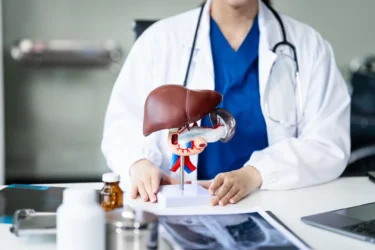
Ever wondered what happens to the medicines like paracetamol once we eat it or what our body does with medicines? The liver is the organ responsible for converting these medicines into a non-toxic form that can be removed from the body. If the liver fails in its function, these drugs, like paracetamol, may accumulate in the body and can result in toxicity. Handa et al. conducted a study2 in 1999 to assess the effect of talmakhana on the liver. The findings of this study showed that talmakhana seeds had a hepato-protective effect against paracetamol poisoning in rats. The results of this study indicate that talmakhana may protect the liver against paracetamol poisoning. However, we need more scientific evidence to support these claims in humans.
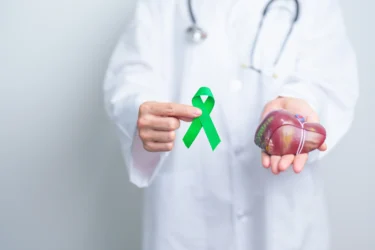
Carcinogenesis is the abnormal and uncontrolled growth of cells, resulting in the formation of cancer. Over the past few years, the Indian system of medicine has been formulating different extracts from herbs and seeds like talmakhana for managing cancers. Ahmed et al. conducted an animal study3 in 2010 which showed that talmakhana seeds helped inhibit liver carcinogenesis in rats. This shows that talmakhana may have the potential to manage liver cancer. However, further research is needed to ascertain these claims as the scientific evidence available is insufficient to claim these results in human beings.
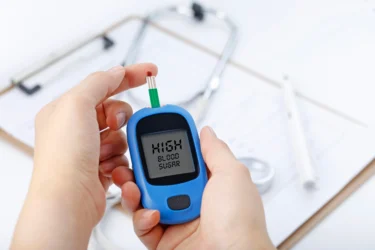
Blood glucose is the main sugar that is found in your blood. It comes from the food you eat and is the main energy source for the body. Fernando et al. conducted an animal study4 in 1991, showing that talmakhana stimulates the liver and muscles to take up glucose from the blood and store it as glycogen. These astonishing results show the importance of talmakhana in lowering blood glucose levels and thus, its potential to manage diabetes. However, we need human trials to support these claims.

Burkholderia pseudomallei are bacteria known to cause melioidosis or Whitmore’s disease. It is known to affect both humans and animals. This bacterium is found in contaminated food and water. The symptoms of melioidosis include fever, stomach, chest and joint pain, headache and weight loss. A review by Samy et al. in 2005 stated5 that talmakhana might help inhibit the growth of Burkholderia pseudomallei and reduce the infections caused by them. Thus, talmakhana is a potential antibacterial agent against Burkholderia pseudomallei. Traditionally, it has been used as a potent antibacterial agent against urinary tract infections. However, we need more scientific evidence to support these claims in humans.

Excessive fluid accumulation in the body or oedema can result in high blood pressure and heart problems like heart failure. A review carried out by Nagendra et al. in 2010 suggested that talmakhana can exert a diuretic effect1. This effect causes the kidneys to increase urine formation by removing excess fluid and salt from the body. This helps in reducing blood pressure and fluid overload leading to heart failure. Thus, talmakhana may help in managing high blood pressure and heart failure. Additionally, talmakhana may also help treat urinary stones. However, to support these claims in humans, more studies are required.
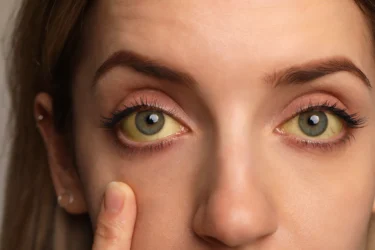
Though there are studies that show the benefits of talmakhana in various conditions, these are insufficient and there is a need for further studies to establish the true extent of the benefits of talmakhana on human health.
I read an article that suggests that Talmakhana may be used to relieve gallstones and kidney stones. The ‘ashmari’ property of Talmakhana is well known and makes Talmakhana a potential aid for managing gallstones8.
Dr. Rajeev Singh, BAMS
You must consult a qualified doctor before taking any herbal supplements. Do not discontinue or replace an ongoing treatment of modern medicine with an ayurvedic/herbal preparation without consulting a qualified doctor.
The side effects of talmakhana are minimal. Ajana et al. conducted a review6 in 2013 which stated that depending on the prakriti (human constitution), few individuals can be allergic to talmakhana and can show allergic reactions characterised by a runny nose, wheezing, rashes, etc.
However, if you experience any adverse reactions to talmakhana, it is advised to discontinue its intake and immediately contact a doctor or your Ayurvedic physician who has prescribed it. They will be able to guide you appropriately for your symptoms.
Consuming talmakhana is okay if taken in moderate amounts. However, general precautions must be followed in the following conditions:
Also Read: Ginseng: Uses, Benefits, Side Effects By Dr. Smita Barode
However, you must always seek the advice of your Ayurvedic physician about the possible interaction of talmakhana with other drugs and follow the prescription thoroughly, as they will know your health condition and other medications you are taking.
Also Read: Psyllium Husk (Isabgol): Uses, Benefits & Side Effects
Talmakhana is the bitter seed obtained from the plant Asteracantha longifolia (L.) Nees.
Yes, In the Unani system of medicine, the seeds of the plant Asteracantha longifolia are called talmakhana, whereas, in Ayurvedic medicine, they are called kokilaksha.
No, there are no benefits of talmakhana for hair growth.
It is advised to always purchase ayurvedic medicines which are assessed for their quality and efficacy. Check for the labels of these products and do not buy talmakhana seeds in loose, as these are adulterated with seeds of R.tuberosa, which is poisonous. The safety of talmakhana in elderly, children, pregnant and lactating women is not well-established. Therefore, necessary cautions must be taken. It is always advised to consult a physician if you plan to consume talmakhana.
The side effects of talmakhana are minimal. Ajana et al. conducted a review7 in 2013 which stated that depending on the prakriti (human constitution), few individuals can be allergic to talmakhana and can show allergic reactions characterised by a runny nose, wheezing, rashes, etc.
Disclaimer: The information provided here is for educational/awareness purposes only and is not intended to be a substitute for medical treatment by a healthcare professional and should not be relied upon to diagnose or treat any medical condition. The reader should consult a registered medical practitioner to determine the appropriateness of the information and before consuming any medication. PharmEasy does not provide any guarantee or warranty (express or implied) regarding the accuracy, adequacy, completeness, legality, reliability or usefulness of the information; and disclaims any liability arising thereof.
Links and product recommendations in the information provided here are advertisements of third-party products available on the website. PharmEasy does not make any representation on the accuracy or suitability of such products/services. Advertisements do not influence the editorial decisions or content. The information in this blog is subject to change without notice. The authors and administrators reserve the right to modify, add, or remove content without notification. It is your responsibility to review this disclaimer regularly for any changes.
Comments

Leave your comment...
You may also like
Comments